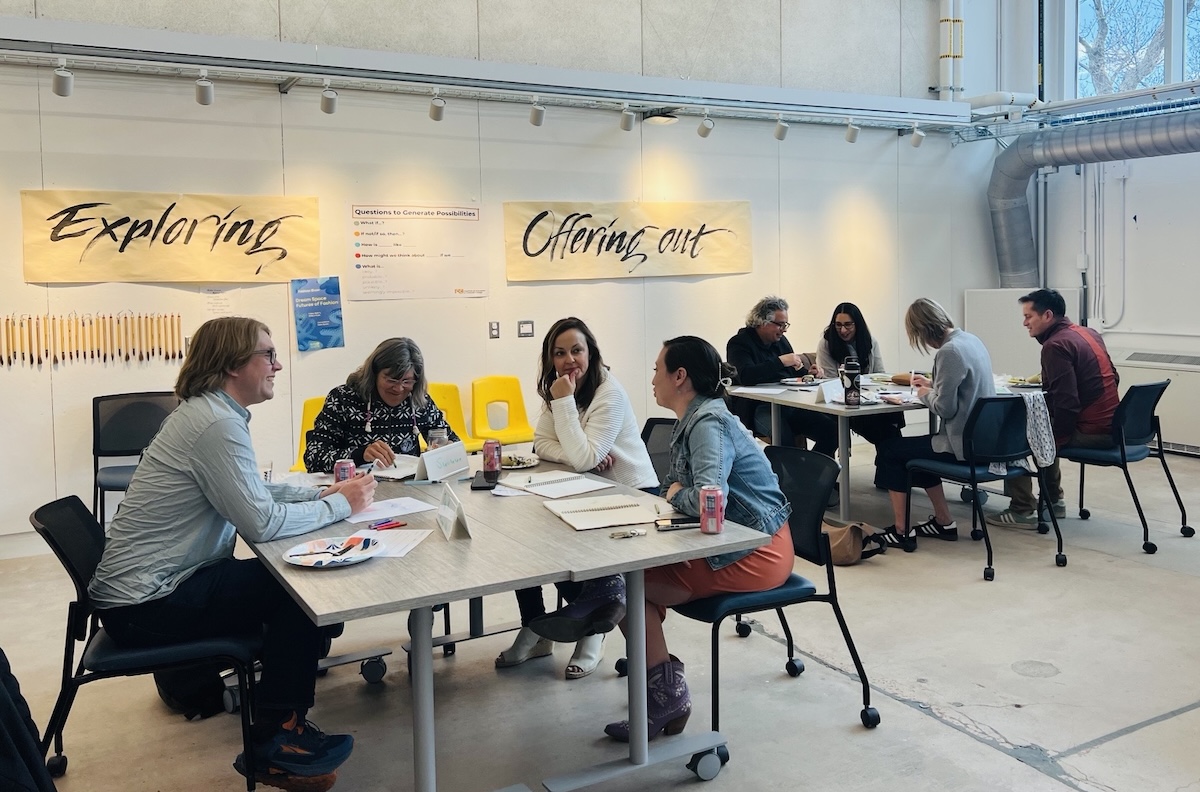The Creative Courage Cohort for Faculty
At its core, creative confidence is about believing in your ability to create change in the world around you. It is the conviction that you can achieve what you set out to do. We think this self-assurance, this belief in your creative capacity, lies at the heart of innovation.” (Kelley, T., & Kelley, D. 2013).
Introducing the CCC
The Creative Courage Cohort is a year-long program that offers a group of faculty members opportunities to explore options for incorporating creative thinking and problem-solving exercises that develop students’ creative confidence into their courses. This experience will especially benefit those who wish to align new or existing courses with the Creative Process general education requirement.
The experience begins with a two-day immersion in mid-August that engages participants in various approaches, which cultivate creative thinking, including instruction in creative problem-solving methodologies and guidance in developing a creative classroom setting. We ask that participants commit to being at both days of the immersion. For academic year 26-27, the immersion dates are Thursday, August 13 and Friday, August 14, 2026.
After the immersion, participants come together as a cohort for additional workshops, discussions, and exercises. Workshops are held on the third Thursday in Blocks 1-3 and 5-7. Throughout the program, faculty have access to support from Creativity & Innovation staff to integrate creativity-building and creative problem-solving exercises into their courses, departments, or other work. Support includes syllabus and assignment development assistance, as well as guidance and feedback as faculty members develop and practice creativity-related pedagogies that meet their specific goals.
Each faculty member who completes the program receives a summer course development grant of $2,000 to modify an existing course, or $4,000 to develop a new course, or an equivalent application (awarded the summer or year after completion).
Registration
Reserve your space by completing the CCC participation form by August 1 of the year you wish to join.
Completion Requirements
Successful program completion requires:
- Attending both days of the immersion
- Attending a minimum of three cohort workshops
- Submitting documentation (see below) that shows the application of creativity-related pedagogies
Documentation can be submitted any time after Block 7, and should demonstrate your process of applying creative pedagogies. It answers the questions:
- “How did you apply creative frameworks and/or exercises to your work/courses/teaching?” (which can be answered by submitting assignment details, syllabus, narrative about your process, etc.) and
- “What were the outcomes and what might you change?” (which can be demonstrated with copies of student work, a narrative of your reflections, etc.).
Documentation can be in the form of a video from your phone of you reflecting out loud about your answers to these questions - no need to script; or anything you developed during the process of application that shows how you applied creativity frameworks/exercises to your work (such as assignment details before and after the application of creative pedagogies, or photos or copies of student work, etc.).
We welcome the opportunity to talk through any part of this process with you.
Philosophy
“The creative experience involves principled engagement with the unfamiliar and a willingness to approach the familiar in unfamiliar ways.” (Glaveanu, V.P., & Beghetto, R.A. 2020).

show all / hide all
